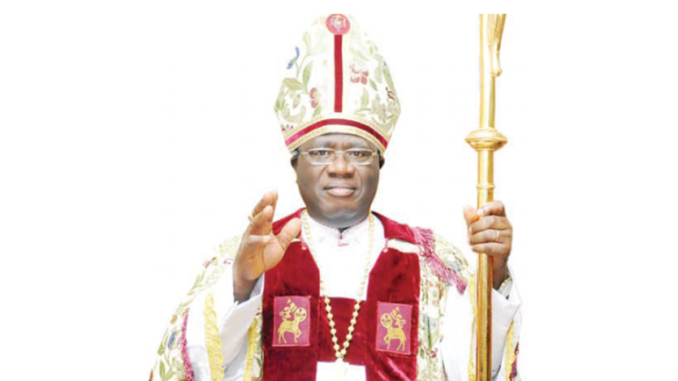
THERE is trouble in the land. Gun-toting kidnappers are running riot across the country without respect for rank or calling. Recently, on the Enugu-Port Harcourt Expressway, Abia State, they stunned the country by abducting the Prelate of the Methodist Church of Nigeria, Samuel Kanu-Uche, and two other priests, dragging the clerics in their hallowed cassocks into the thick forest. After threats and torture, they did not release their victims until N100 million was raised and delivered in jute (Ghana-must-go) bags. This incident and the revelations that followed confirm that nobody is safe, and nowhere is secure in Nigeria. The federal and state governments must adopt strategic stringent measures, enforce existing laws, and confront this hydra-headed monster.
Everywhere, priests are respected, but Nigeria’s kidnap-for-ransom entrepreneurs and terrorists have long since crossed the bounds of decency. Ranked eighth in 1999 on the Global Kidnapping Hotspots chart, Nigeria moved to fifth place by 2014 after Mexico, India, Pakistan and Iraq. It is reckoned to be the country’s fastest growing and most lucrative “industry.” SBM Intelligence said 2,371 persons were kidnapped in the country in the first six months of 2021. The International Centre for Investigative Reporting reckons that kidnappers reaped over N1 billion in ransoms in the North-West and North-Central regions alone in 2021.
The kidnappers are a wide assortment of ruthless criminals ranging from Boko Haram/ISWAP terrorists and their offshoots, their allies, the bandit/terrorists, Fulani herders/militants across the North, “unknown gunmen” in the South-East, criminal gangs in the South-West and South-South, and individuals, including and copycats attracted by the rich takings and capitalising on ineffective law enforcement.
Relieving his traumatic experience, Kanu-Uche re-echoed long voiced allegations of collusion with the Fulani marauders and kidnappers by elements of the Nigerian Army. Alleging apparent complicity by military personnel, the prelate, among other factors, based his conviction on the presence of soldiers within the vicinity of the kidnap operation. Bristling, the military hotly denied the charge.
Unlike previous allegations of collusion, however, the Nigerian Army should not wave this one away. Complaints by victims, communities and various groups of such collusion are too frequent to be dismissed. Many other persons, high and low, have levelled similar accusations that kidnappers operate unhindered within the vicinity of deployed troops. Furthermore, it has been alleged that some troops that share ethnic and religious affinity with the murderous Fulani herders and kidnappers terrorising communities all over the North-Central and southern regions fail to act when innocent citizens are attacked. This should also be investigated.
The denial by the Army spokesman is not enough: there should be several levels of enquiry, including by the parliament, to confirm its veracity or falsehood. When Nigeria ex-international, Mikel Obi’s father, Michael Obi, was abducted and a ransom of N20 million demanded, soldiers were discovered to be among the kidnappers. Two soldiers were among nine suspects paraded in October 2016 for the kidnap of the wife of the Governor of the Central Bank of Nigeria, Godwin Emefiele. About N14.7 million, which was part of the ransom collected, was found on the officers. In Abia State, youths have been protesting increased kidnapping incidents in areas with heavy military presence. These are suspicious coincidences suggesting unacceptable complicity or negligence. The military should identify and flush out personnel colluding with criminals.
The prelate insisted that his abductors were “Fulani boys,” who claimed that the regime of the President, Major General Muhammadu Buhari (retd.), “disappointed” them. This is another often repeated claim by Fulani bandits, militants and terrorists across the country. The regime and the Northern elite should tell Nigerians the agreement, if any, they made with these bandits that gives them a gigantic sense of entitlement, including unleashing terror on innocent Nigerians.
Shamefully, while the cleric was in the kidnappers’ den, as usual, no visible tangible rescue effort was made by security agencies. Like others, the culprits may never be brought to justice. This makes complete nonsense of the SIM registration, National Identity Number and the Bank Verification Number initiatives of the Federal Government. If kidnappers still negotiate ransoms on phones and make and post videos on social media without being tracked and located, the claim that 73 million lines were blocked in April 2022 over non-linkage to NIN sounds dubious. Everywhere else, law enforcement agencies deploy ICT to track down criminals and terrorists. Here, terrorists are exploiting Nigeria’s technological incompetence, and weak and politicised law enforcement to overwhelm the people.
In July 2021, there were reports that kidnappers had started withdrawing ransoms from banks. The security agencies should be able to track the criminals.
The Governor of Benue State, Samuel Ortom, also recently accused the Presidency of being part of a grand scheme to perpetuate land grabbing. Although it denies the allegation, unfortunately, the Buhari regime has been sloppy. Worse, it has politicised insecurity. Despite its empty rhetoric, corruption flourishes in the security sector, further weakening the failed single national policing system.
The National Security Tracker said 5,287 Nigerians were kidnapped in 2021, a geometric rise in the number of abductees in 2020, when 2,865 people were kidnapped; 2019 (1,395) and 2018 (987).
Its political leaders have driven Nigeria to the precipice. State governors should fulfil their primary responsibility of keeping the people safe. Dane gun-wielding vigilantes cannot withstand gunmen armed with AK-47 rifles, grenades, and machine guns. They should strengthen existing regional security agencies. These should be accompanied by state vigilance agencies. Both should be well-armed, funded and equipped with modern vehicles, communication gadgets and ICT tools.
Kanu-Uche’s report of confessions by the kidnappers that they have ‘sleeper cells’ on the Lagos-Ibadan Expressway, waiting for the signal to strike, should also be investigated. Again, it is not a new revelation but is given added weight and urgency coming from the senior cleric.
The South-West governors must take this threat seriously, strengthen internal security and flush out these criminals from the forests.
END

Be the first to comment